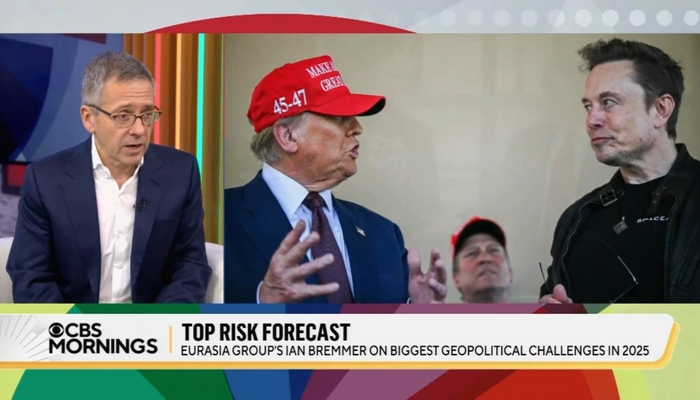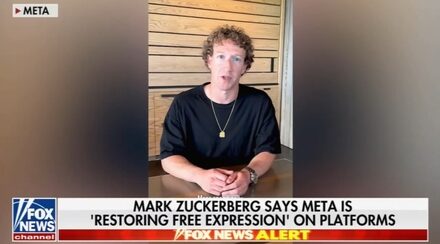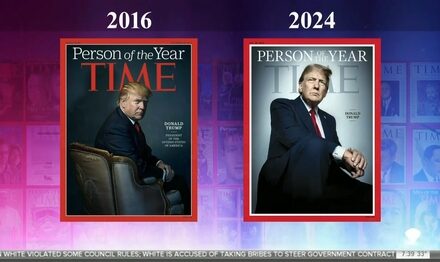We support our Publishers and Content Creators. You can view this story on their website by CLICKING HERE.

On Monday and Tuesday, CBS, CNN, and MSNBC each dedicated a segment to the self-described geopolitical consultant firm Eurasia Group’s annual release of its Top Risks for the coming year. Unsurprisingly, the list was dominated by anti-Trump fearmongering, ranging from his aversion to globalist organizations (first) to a cartoonish view of his presidency being one of creeping authoritarianism (second) to a second Trump administration cracking down on China (third).
Those were just the top three as fourth was fearmongering about Trump’s economic policies in fourth, “Russia still rogue” at five, a struggling Iran, the global economy struggling because U.S. vs. China tensions, artificial intelligence, “ungoverned spaces,” and Trump’s border plans to round out the top ten.
CBS Mornings co-host Tony Dokoupil explained the top risk was “a world in which — you’ve heard of the G-7, G-8, the G-Zero wins. That’s the idea that we could be in an era with a total lack of international leadership where ‘no powers drive a global agenda and maintain international order.’ No one’s at the wheel.”
President and frequent TV news guest Ian Bremmer said it was reminiscent of the 1930s and “a return to the law of the jungle, where the powerful do what they will, and the weak do what they must, and no one is really protecting them and a G Zero world is very aligned with also an America First world.”
Noting America’s traditional allies have been beset with their own problems, Bremmer said they’re also petrified of being targeted by Trump on social media and lamented the new administration “want[s] to set rules that benefit us and we are going to go and talk to all of those leaders, and we’ll put tariffs on them if we have to” and not thinking about the benefit of the collective.
Co-host and Democratic donor Gayle King cued him up to attack X owner and Trump ally Elon Musk (click “expand”):
KING: What role do you think Elon Musk plays here? He is not an elected leader, but he seems to be a very — quickly becoming a very powerful force on the world stage, and seems to be weighing in on many key issues that are facing the United States and the world.
BREMMER: Well, now he is —
KING: How do we navigate that?
BREMMER: — for now, he seems to be the bomb thrower in chief of the United States. I mean, he’s the one out there with 200 million followers, you know, saying that the UK government has to be overthrown, that the AFD, the Euro-skeptic, far right, alternatives for Deutschland, they should be in charge of Germany. American allies are panicked about this. They are right now in crisis talks about what they can do, and what they can do could include actually putting some restraints on Twitter/X, but at the same time they’re deeply concerned, well, if he’s that close to Trump, is that going to affect —
KING: He is speaking for Trump.
BREMMER: — our relationship? Is he speaking for them? Is Twitter/X a part of the military industrial complex of the United States? Are they a national champion? It’s hard to imagine that Elon would be making all of these statements if Trump wasn’t okay with them.
Co-host Nate Burleson pivoted to second place by wondering “what about [Trump’s] presidency is so risky,” which Bremmer replied the concern is he’s “consolidated so much more power this time around” and his staff “are directly loyal[.]”
Showing his elitist side, he also alluded to number ten and the border, lamenting deportations will have an effect “on inflation in the United States, for example, on you know, consumption.”
CBS’s morning show also had Bremmer on in both 2021 and 2022, which we chronicled as they lamented top risks as respectively having been political opposition to a Biden presidency and then a GOP midterm victory.
A day earlier on MSNBC, Dokoupil’s wife Katy Tur brought Bremmer on to explain the G-Zero point about Americans being less interested “in promoting global free trade or collective security or even promoting democracy around the world” (click “expand”):
BREMMER: Well, I’m glad you started with all of those leaders, erstwhile allies of the United States but incredibly weak, and we could add, you know, the Japanese to that list. We could add, you know, a bunch of other Europeans facing anti-incumbent threats to that list, so what’s happened, I say the law of the jungle, those countries are playing defense, they’re trying to stay out of the headlines. We saw what just happened with Justin Trudeau by making the trip down to Mar-a-Lago. It didn’t go very well for him. While the United States, which is comparatively much more powerful, but is absolutely not interested in promoting global free trade or collective security or even promoting democracy around the world, it’s much more interested in transactional relationships, one-on-one, where it, us, the United States is more powerful. So, it’s kind of a breakdown of the old global order and replacing it with something that is much more uncertain, volatile, and dangerous.
TUR: How do you do that when we live in a world that is so intertwined? We’re very tangled up in each other, especially economically. How do you turn instead to more insular nations with leaders who are less — less easy to work with who don’t want to rely on other nations?
BREMMER: Well, one, is if you’re a more powerful country, you try to force those other countries to bend to your will and change the rules in your favor, hence incoming President-Elect Trump talking a lot about using tariffs to get not only trade balances in a direction that he prefers them, but also get countries to pay more for national security, get countries to tighten their borders, all sorts of different things. So, if you’re a very powerful country, it’s a much easier place to be. Having said that, you know, we all know that there are economic costs of those sorts of policies, the dollar is going to be stronger, inflation is going to go up. You know, growth is going slow, and even a decoupling from China, everyone understands that China is a very big adversary, competitor of the U.S. It’s not a trusted relationship, but that was a relationship that both Biden and Xi Jinping tried over the last year to manage, to create more stability, and China is in a very difficult position economically right now, but Trump is coming in and saying, I’m going to hit you guys with 60 percent tariffs. Well, unless the Chinese cry uncle and offer a deal that Trump is prepared to accept, the reality is we will be decoupling further our economies, and there will be a global cost to that. There will be a cost to American consumers for that as well.
Later, the two focused in on Iran and the Middle East, which Bremmer seemed hopeful as America’s “in a stronger position today in the Middle East, in part because of the Abraham Accords and in part, Israel has escalation dominance over Iran, over Hamas, over Hezbollah, over everyone that’s an adversary in the region.”
Eurasia Group chairman Cliff Kupchan made the CNN appearance on Monday mornings’s News Central and said the world’s “been in a declining geopolitical system” and “the unilateralist administration of Donald Trump” will “put the decline of international leadership on jet skis.”
“That leaves a lot of room for rogue actors, a lot of room for market disruption. It’s that complete absence, which is rare in diplomatic history, that complete absence of international leadership which leaves us so exposed this year. That’s why it’s our top risk,” he added.
Berman shifted to number two and what Kupchan called “the slow erosion of the rule of law that really worries us” under a second Trump presidency, accompanied by “a very loyalist, more experienced team” that’ll target “the military, the courts, adversarial media, and especially federalism.”
To see the relevant transcripts from January 6 and 7, click here (for CNN), here (for MSNBC), and here (for CBS).

 Conservative
Conservative  Search
Search Trending
Trending Current News
Current News 





